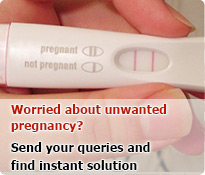Recently updated on February 15th, 2023 at 07:24 am

Introduction:
Women are inclined to many complications and experience more reproductive health issues because of menstrual problems or issues related to reproductive systems. Thus, issues related to menstrual problems require prompt and careful analysis.
Some complications linked with menstrual are as follows:
Dysmenorrhoea: This issue is related to severe pain during and around the time of menstrual days. The pain may be impairing and in some cases, it is accompanied by dizziness, fainting, nausea, exhaustion, headache, and even diarrhea or constipation. Continuous low back pain is a congestive dysmenorrhoea whereas cramping pain is sporadic dysmenorrhoea.
Menstrual cycle: The menstrual cycle can vary from 23-35 days. It is normal if your periods befall at regular intervals. Small irregularities like a period for a menstrual cycle altering from 25 to 35 days to the next cycle happens are common and natural. However, no period, large gaps, spotting as well as constant bleeding for a few weeks when periods occur, then you have to immediately visit a doctor. Thus he can figure out if you have some issues like polycystic ovary syndrome.
Menorrhagia: Menorrhagia is an extreme flow during periods. The average amount is generally around 35 ml over the entire menstrual cycle. The simple way to gauge for excessive flow is if you require to change your pad or tampon more frequently during the day.
Premenstrual symptoms: PMS describes the symptoms that occur after ovulation and are unavailable during menses. There is a huge list of symptoms nearly over 150 that lead to confusion in its diagnosis. Mood swings, depression, weight gain, food cravings, constipation, headaches, bloating, etc. are some common symptoms. So to make it uncomplicated PMS is categorized under types such as Type A, Type C, etc.
Womb and Uterine Troubles:
Fibroids are non-cancerous tumors in or on the walls of the uterus. They are also referred to as myomas. These vary in size from a small pea to the size of a 7-month-old fetus. Depending on where they grow i.e. (within the uterine wall or inside or outside the womb) they are classified as intramural, submucosal, subserosal, and pedunculated fibroids. These are the reason behind heavy periods and intense pain in some cases. Many menstrual issues are related to the growth of fibroids.
Endometriosis: Endometriosis is a situation where the lining of the womb grows outside the womb. It can grow in the pelvis, ovaries, fallopian tubes, and ovaries. The endometrium is affected by hormonal changes and bleeds during menses. Since there are no open causes scars, inflammation, cysts, etc. This situation can result in extremely painful sex and a painful period.
Hysterectomy: Hysterectomy is the withdrawal of the uterus and is rarely carried out to save lives. The most common being heavy periods. It can also be advised in case of prolapse, fibroids, endometriosis, cancer, or pelvic inflammatory disease.
Infertility: Infertility of barrenness from a medical point of rivals is caused by numerous factors. Ovulatory failure, endometriosis, damage to the fallopian tube, and some other difficulties cause infertility. Lifestyle factors, emotional elements, and nutrition deficiencies can affect women’s health and can also result in infertility.
So these are some of the reproductive health issues which women can experience. So if you observe any kind of symptoms immediately consult a doctor.


